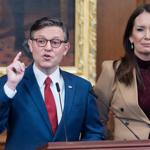Jody Gelb is far too familiar with understanding that despite how much you try to prepare for something devastating, you can never truly understand until you experience it yourself.
When her first daughter was born with damage to her brain, Gelb was unprepared for the life she and her family would now live. Despite all of the doctors scurrying around and tests conducted, and the seemingly forever stay in the neonatal intensive care unit, Gelb was left without any answers.
A lack of communication from doctors pushed the Burlingame resident to search for any guidance in relevant literature. It was through the many books she read relating to raising a child with special needs that she realized that “this isn’t going to magically disappear.”
One piece of work in particular, “Welcome to Holland” by Emily Perl Kingsley, provided an outlook on raising a child with a disability that Gelb found comforting. It draws a metaphor to planning a “fabulous vacation” to Italy, but landing in Holland, and finding joy in an unexpected circumstance.
But when her daughter’s experience with cerebral palsy proved to get worse as time went on, Gelb felt like she wasn’t anywhere near Western Europe.
“As we moved forward with so many terrifying things with my daughter,” Gelb said. “Holland is lovely, but it’s not quite where I feel that we were for those days and months, which was somewhere much more terrifying than Holland.”
After moving from New York to California so her daughter could attend The Bridge School, a school in Hillsborough for children with severe speech and physical impairments, Gelb said she became increasingly aware of how vulnerable her daughter was.
“At a certain point, it dawned on me, I knew now her life is actually going to be in danger and I started seeing what was going on,” Gelb said. “I realized that’s where we’re heading, and my way of dealing with it was to get into that box and look around.”
Gelb remembers parsing through websites in the middle of the night trying to understand everything she could about life expectancy, after-death care and anything related to mortality. She almost called her book “the accidental thanatologist.”
“I knew that I couldn’t prevent something from happening,” Gelb said. “But, maybe there was some aspect of magical thinking in thinking ‘you’re going to keep her safe as long as possible because you are so on top of this.’”
Despite her efforts to “avoid any surprises” at the end, nothing could have prepared Gelb for how she felt when her daughter died at 16 years old in 2011.
Recommended for you
Gelb said she became intimately aware with the understanding that no other person’s experience will ever prepare you for your own, and no abstract idea can ever compare to the reality of dealing with catastrophe.
The intention was never to write a book, Gelb said, but there was a very natural therapeutic process that she experienced as she journaled her day-to-day emotions. It was over the course of 22 years that she went through the “mental torture” of working through her difficult emotions and translating it to paper.
Her career in acting, primarily in theater, might have equipped Gelb with a fondness for the dramatics, but she struggled to feel confident in her writing abilities, often questioning if she should be writing this book at all.
However, her supposed lack in knowledge about writing practices was made to be irrelevant by her intrinsic understanding of her experience with tragedy. Gelb maintained any effect this book will have on others is just a rippled effect from the overall relief it provided her in processing her daughter’s death.
“It’s not ‘here’s how you have a child with disabilities, here are things that you can do,’” Gelb said. “It’s much more impressionistic, which was the only way it came out of me.”
Gelb’s intention to be honest and vulnerable, regardless of how ugly some feelings may appear, shows in her writing style throughout the memoir’s 154 pages. She said there’s no sense in pretending things didn’t happen as they did, including the dissolution of her marriage and the rocky dynamic of her own parents.
The title of the book is actually the words Gelb’s ex-husband said when their daughter was first receiving at-home physical therapy. In frustration, Gelb asked if her daughter was always going to be lying down.
“He just said very quietly, with his Polish accent, ‘She may be lying down but she may be very happy,’” Gelb said.
It was true that Gelb’s daughter could in fact only lie down on her own, but Gelb said she still lived a very happy life.
“Out of a lot of difficulty, one does forge a life,” Gelb said.
Gelb will be reading from her book “She May Be Lying Down but She May Be Very Happy” and signing copies at Barnes & Noble at 1232 Burlingame Ave., from 1-3 p.m. Saturday, May 4.






























(0) comments
Welcome to the discussion.
Log In
Keep the discussion civilized. Absolutely NO personal attacks or insults directed toward writers, nor others who make comments.
Keep it clean. Please avoid obscene, vulgar, lewd, racist or sexually-oriented language.
Don't threaten. Threats of harming another person will not be tolerated.
Be truthful. Don't knowingly lie about anyone or anything.
Be proactive. Use the 'Report' link on each comment to let us know of abusive posts.
PLEASE TURN OFF YOUR CAPS LOCK.
Anyone violating these rules will be issued a warning. After the warning, comment privileges can be revoked.